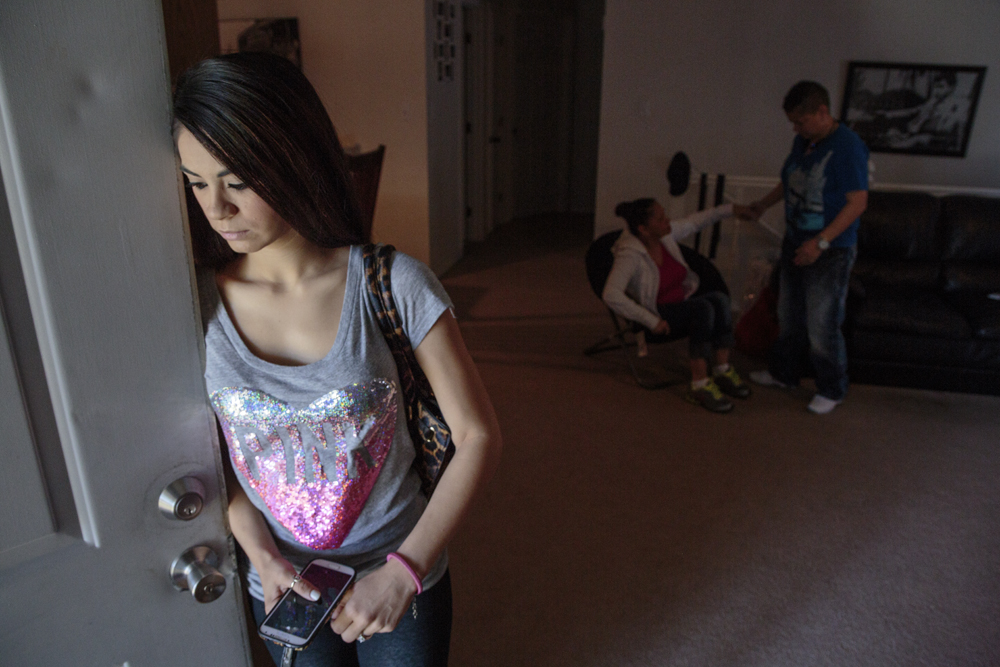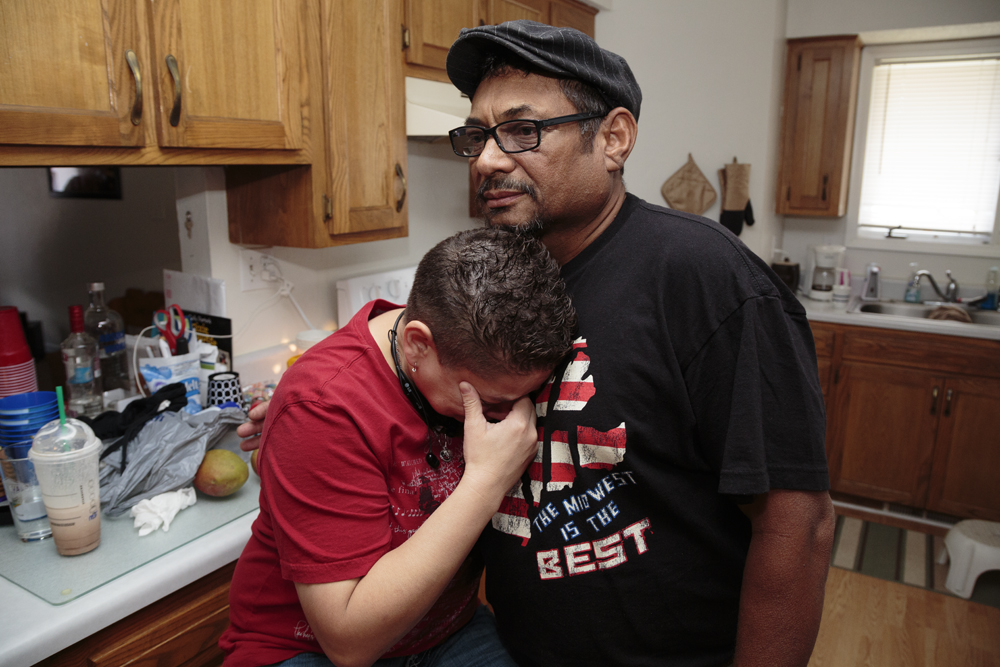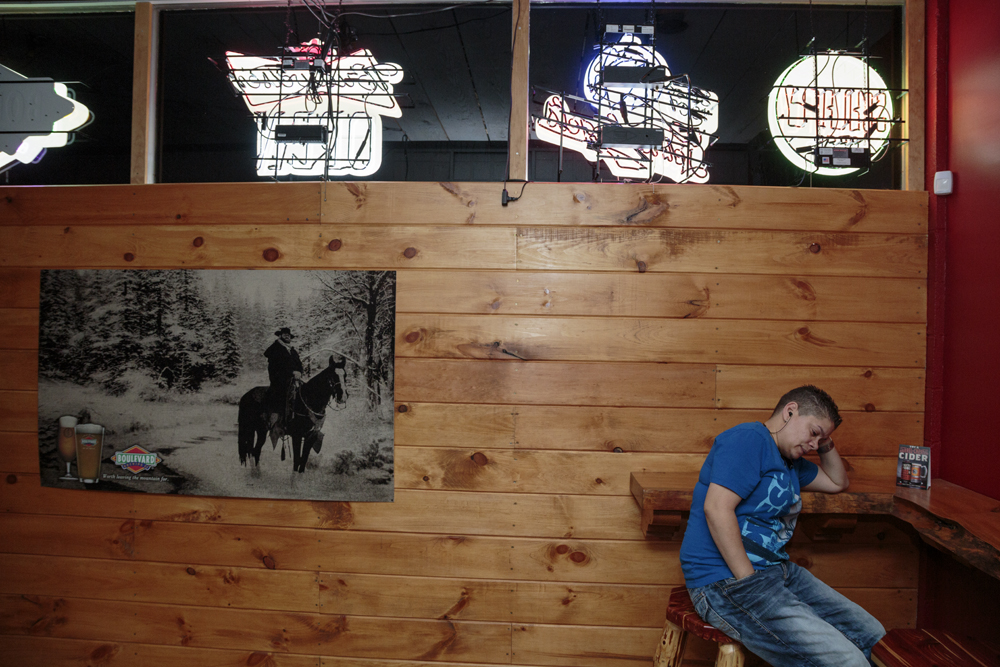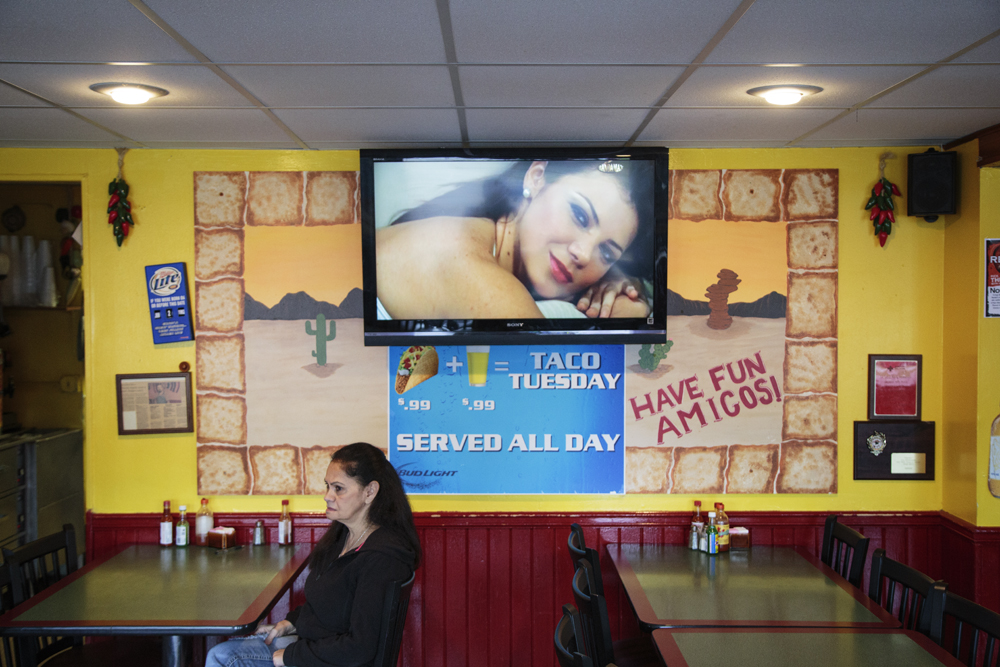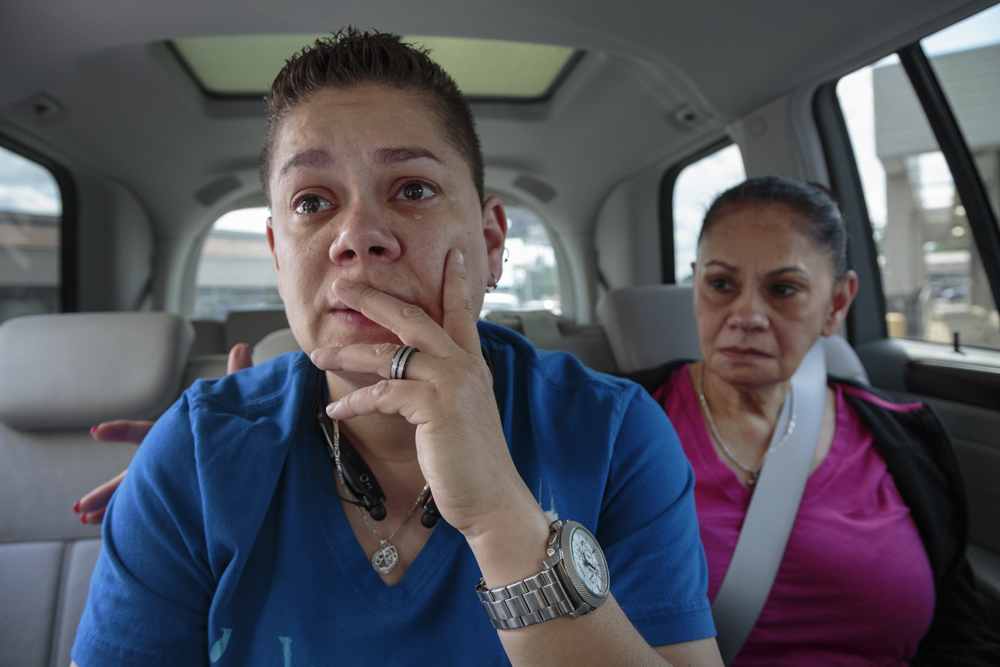Early Onset Alzheimer’s
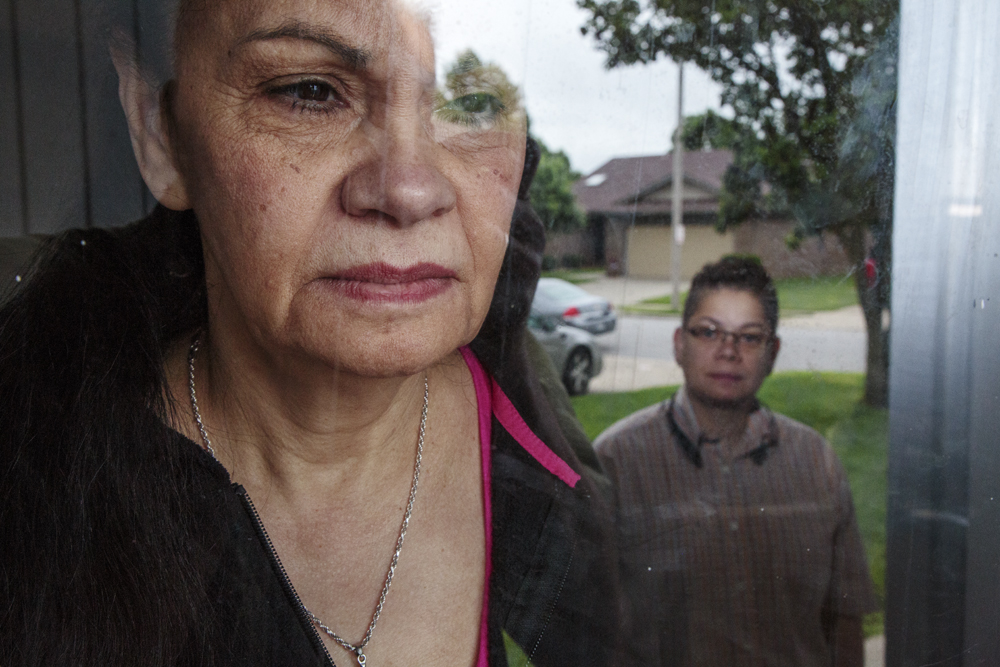
-
PhotographerEd Kashi
Sonia Iris Cardona, who taught bilingual language classes for 29 years for Kindergarten through 8th graders, first started showing signs of Early Onset Alzheimer’s at age 48. After being passed around for a while by two of her children, Sonia was “dropped…off…with a small suitcase†on the steps of her single daughter Daisy Duarte’s home in Springfield, MO. That was four years ago. After closing her sports bar in November 2012 to care for her mother fulltime, Daisy, who is 39 and has no children, waitresses at her sister’s restaurant to help pay bills. Sonia, now 58, accompanies her daughter to work and sits for hours at a corner table with coloring books and crayons. Since Daisy has no idea how much time her mother has, she’s trying to fill their lives with as many fun things as possible – special trips, going to her mother’s beloved Cubs’ games and out to eat, playing pool; to do whatever she can, while she still can. Although Daisy says that caring for her mother is challenging, she wouldn’t have it any other way. “I’ve looked into homes but I don’t have the heart to do it…I just can’t. She’s my world. Why would I turn my back on her now when she needs me the most?†While there is no history of Early Onset Alzheimer’s on Daisy’s paternal side, her mother’s family has an extensive family history of the disease, which represents 4 percent of all Alzheimer’s cases. With a 50/50 chance of getting it, Daisy – unlike her brother and sister – wants to know her situation and so goes in for genetic testing. If she tests positive, she can enroll in a clinical trial for a new drug that researchers hope will hold off symptoms of early Alzheimer’s for as long as a decade. “I guess I just want to be prepared,†she says of her decision to find out. “My Mom didn’t know anything, and she was bouncing from house to house. If my friends say, ‘Daisy, you’re getting bad,’ I’ll just put myself in a home.†After unfortunately testing positive for the gene linked to early onset of Alzheimer’s Disease, Daisy is part of the Dominantly Inherited Alzheimer Network (DIAN), an international research project aimed at hopefully one day finding a way to treat or even prevent the disease. “I have nieces and nephews,†she says. “I would like by their time to have a cure or at least be able to stop it from being so aggressive.â€
